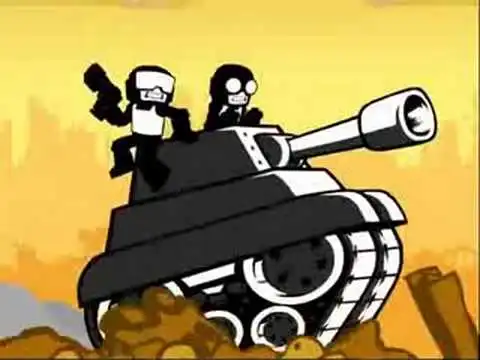It’s a rare example of English being simpler than other languages, so I’m curious if it’s hard for a new speaker to keep the nouns straight without the extra clues.
It’s not confusing at all, except in the very specific case of nouns referring to people or animals that don’t have gendered variants.
For example, in my language, the word corresponding to “(a) sheep” has a masculine and feminine form, with the feminine used neutrally. Consequently, when seeing “sheep” in English, I assume the feminine and seeing it used with “he” is a bit of cognitive dissonance.
Similarly, most words for human professions are by default masculine.
I remember reading a story written in English, and it kept mentioning „the cook“ (no pronoun, no name). My gender biased brain assumed the cook must be male. So I got confused when the pronoun „she“ finally appeared. I had to reread the paragraph to understand what was going on.
Embarrassing and eye opening.Ive spent some times on farms and haven’t ever herd/used he for a singular male sheep before.
If its a singular male I would say the ram.
But its just normally sheep, generally female. If you want to be specific its weathers, ewes, lambs or rams.
deleted by creator
What? She in Chinese is 她. It might not be used often but it definitely is gendered…
deleted by creator
hmm, idk man, over here 他 is only for men, and 她 is only for women.
though in speaking we just use 佢 because canto
I think it’s just that one point where you have to accept things like that exist. Sometimes gendering slips out of your mind, but a lot of people let it slide.
Swedish has genders, but not male/female but utrum/neutrum.
These are not really rule bound, and has to be learned word by word.
Some words are even double gendered but means different things depending on what gender is used.
Example
“En borr” / “borren” = a drill / the drill
“Ett borr” / “borret” = a drill bit / the drill bit.
But to answer your question, English is in many ways simpler than Swedish, you can specify any article by just putting “the” in front of it. In Swedish you need to select the proper -en/-et suffix with no real hard snd fast rule.
Where english is annoying is compound words.
“Realisationsvinstbeskattning” is the longest word in the Swedish dictionary, it is made up of three separate words,
Realisation - Sale
Vinst - Revenue
Beskattning - taxation
So the word simply means taxation on sale revenue.
According to Guinness book of world records the longest Swedish from 2006 the longest Swedish word is:
nordvästersjökustartilleriflygspaningssimulatoranläggningsmaterielunderhållsuppföljningssystemdiskussionsinläggsförberedelsearbeten
But that is just ridiculous and looks like it comes from a report for the military where someone made the word because they could and enjoyed languages.
Lets break it down into individual words
nord-väster-sjö-kust-artilleri-flyg-spanings-simulator-anläggnings-materiel-underhålls-uppföljnings-system-diskussions-inläggs-förberedelse-arbeten
I am on mobile and the word would take too long to translate here, but it means
“Preparatory groundwork for the discussion on maintenance systems for materials used in the coastal artillery’s flight reconnaissance simulator covering the north western costal sector.”
The issue with English for a Swedish speaker is the lack of compound words, making Swedes used to separating compound words when writing. Which can have fun results:
Herrskjorta = mens button down shirts
Herr skjorta = Mr. Skjorta
Kassapersonal = Cashier
Kassa personal = terrible staff members
I am learning a lot here. I am also Swedish lol. I was however great with the English classes, easily top 3 (okay honestly though I am being humble, I was really dominating those classes up until high school, so hard I dont even remember anyone even being in second or third place)
It sounds obnoxius but its true, if you also had a negative reaction to my story like myself, please find relief in that it was my peak and that I am single since years with heavy substance abuse going on the daily - also let me delete this in a bit okay bye lol
It’s not, why would that even be a good thing? Get rid of adding identifies to objects like a 6yo.
You get used to it. The other way around is likely a lot harder, considering that a new concept is being introduced.
Can confirm. English is my first language and I took German in high school; it was basically just memorization for which words get which.
in my language nouns aren’t gensered either so it was pretty easy
Not at all, it’s easier that other gendered languages since object genders get shuffled up.
Easy, no problems at all. English articles are what breaks my head.
Wow, really? “A, an, and the”? I’m curious how you get confused with those.
…because its the articles which are not gendered, not the nouns.
Because recognising when to use “a”, “the”, or 0 article is tricky.
A/an is usually fine. 0 article and the are tricky, and then getting it right on the fly is hard.
We take it all for granted and get it, but they’re hard for people who don’t have an equivalent in their first language.
As the speaker of an English language me can tell you is not a difficult.
Not at all, it makes it simpler, in many cases you don’t even need it or is even simpler to convey the gender in other ways
Non-gendered wording isn’t exclusive to English, it’s mostly other European languages that stick to doing that.
There are some languages that don’t even have different words for “he” and “she”.
Edit: made the wording less asshole-y
Non-gendered wording isn’t exclusive to English. Asia exists.
I mean to be fair those languages have other ways of determining which word does what other than sentence order and vibes if my knowledge of basic Chinese is correct.
Non-gendered wording isn’t exclusive to English. Asia exists.
I wasn’t trying to imply otherwise.
Thanks for the insight!
Chinese is even cooler in that they don’t need different, often irregular versions of the same word for tense and plural either.
Hell yes
Just use one character and there you have your plural
They lose out in that any time you refer to something that can be counted, you have an irregular counting word before it. Each word doesn’t get its own counting word though, and there’s a generic, ge you can always use if you have the vocabulary of a 3 year old, so it’s not that bad, but it’s still completely unnecessary memorization.
Here I agree, it’s an unnecessary pain, and the counting words are often super counter-intuitive
As someone trying to learn Spanish I wish there was no gendering in Spanish. It makes the language significantly harder to learn.
Not.
English is a very straigh forward to learn language.
Now, an English native speaker learning a gender declining language… oh, how fun to watch.
I find it fairly easy to learn but insanely difficult to master
I speak my native language for a couple of decades now and the more I speak it, the more I realize I don’t master it.
I can read, write and hold a conversation in English. But if asked, I will say I can get by but very far from even the lowest level of mastery.
Most of us who are native English speakers haven’t mastered it either, so you’re not alone
There used to be Doctor/Doctrix, actor/actress, etc but it has gone by the by in the last few decades. There’s still dog/bitch, ram/ewe, cow/bull etc.
I still use actress, does that make me sound weird? Same for masseuse/masseur, waiter/waitress, hostess/steward (on a plane) and I can’t think of anything else right now.
Not a single word on that list would even ping on my radar if you said it near me, except for “Masseur.” If you said “Masseur” near me, I would think “oh, fancy.” -Native English speaker from SE USA
I didn’t even know masseuse was gendered, I’ve never heard anyone use masseur in the US.
Weird? Certainly not. To me it makes very little difference - although I understand the idea behind eliminating the male/female dichotomy. Stick with whatever you’re used to. As long as I understand what you say I don’t lose sleep over the words used. One more for the list: prostitute / gigalo.
not at all. it simplifies the learning experience by quite a bunch.
one of the more confusing is learning other gendered languages where the gender of some object is different to the one in your mother tongue
To make matters worse, some languages have the exact same word but with a different gender. Heat in Spanish is el calor but in Catalán is la calor
To make matters even worse, in some languages the exact same word with different gender has different meaning.
In German:
“der Band”, male, = a (book) volume
“das Band”, neutral, = ribbon
“die Band”, female = (music) bandBonus: “die Bande” can be a gang, a sports barrier, and (relationship) ties.
It’s sure nice not having to learn German. I’m a native.
one of the more confusing is learning other gendered languages where the gender of some object is different to the one in your mother tongue
That’s something I hadn’t really considered. Interesting!
Yeah I basically never thought about the gender of English nouns because there’s very few reasons to







